- Home
- Anne Hampson
An eagle swooped Page 6
An eagle swooped Read online
Page 6
'Feel it, Paul no, this one, the handle. Can you make out the decoration? It's very faint. Aren't I lucky?'
'There are many, very many of these.' Kypros deflated her by his information and Paul laughed as if sensing her disappointment. 'You find them all the time. The people who live here don't want them. They never pick these up.'
'Well, it seems you had better throw them down again,' Paul advised with some amusement. 'They're not museum pieces after all.'
'I'm keeping them, all the same. Just think, they were made over two thousand years ago. Yes, of course I shall keep them.'
Kypros was smiling in a rather superior sort of way as, she supposed, he smiled when the hordes of tourists went about like this, picking up these potsherds which, now she came to realize after scanning the ground more closely, were lying about in their hundreds.
'You're not going to clutter up our porch or verandah with those things, I hope.'
'Clutter?' She put them in her pocket and took hold of his hand, for the ground had become rough and stony, and besides, Kypros had just whispered to her that there were snakes about here. 'How can I clutter up a large porch like that with two small pieces of pottery?' Her eyes were alert and her desire now was to get away from this dead, deserted city of the past.
'Perhaps not with two, but if you're so fond of these old bits of pottery I have a firm conviction that you won't be satisfied with two. Cyprus is just overflowing with this sort of thing. You find them everywhere, so I'm told.'
Presently they were at the car, and no other stop was made until they reached home. It was late afternoon; the sky had darkened early and there appeared to be a threat of rain.
'I'll read to you, then,' Tessa offered When Paul said it was too chilly to sit outside. 'What would you like?' 'You can read me the English newspaper for a start,' he said, settling down in a chair. 'Lucinda, would you fetch me a glass of water?'
'Of course.' She went off to the kitchen. Takis had gone down to the village to see his aged mother and to take her some vegetables which Paul insisted she have two or three times a week. 'I'll put it in the usual place,' she told Paul when she returned with the glass. Whenever he had a drink it was placed on the right hand corner of the small table any table which happened to be near. But as she went to put it down Paul reached out a hand for it. The glass was tilted and the water spilled on to his clothes. .
'You clumsy girl!' he snapped. 'Get me a towel.' Tessa could not move, and she just stared at him, utter incredulity in her lovely eyes. Never before had he reached for the glass like that. Always he had waited until he could be sure that whoever was putting it down for him had moved away. And never before had he spoken one sharp word to her ... Never? Her eyes flickered as she recalled that fleeting impression that, when he spoke to her about the car, his voice had an edge to it. 'Where are you? Have you brought the towel?'
'N no I'll fetch it right away.' She went out and was back within seconds. 'Let me do it,' she offered, but he took the towel from her. 'It's on your coat, ·Paul—'
'Don't fuss Lucinda. I can manage.' His voice was quiet now and the hint of anger had gone.. 'I did get along quite well before you came, you know.
She read to him, and then made the supper. He spoke with the old tenderness and later, much later, as she lay awake, his arm tightened lovingly around her.
'What is it, my dearest?'
'Nothing, Paul,' 'she quivered. 'Just Just hold me tight. Hold me tight ... always.'
CHAPTER IV
A DOZEN pairs of dark eyes raked Tessa's slim figure, from her shapely bronzed legs to her face. She was used to this by now and merely sent a smile in the direction of the men sprawling outside the cafe, just idling their time in the true Cypriot fashion. She had walked down from the house, to collect any letters which might be waiting at the cafe.
'On the shelf, Madam Lucinda.' The proprietor gave her a broad smile and indicated the box, high on a shelf, where the letters for the foreign residents were kept. The letters for the locals were lying scattered about on the shop counter.
'None today.' A heaviness in her tone, and Tessa frowned'. Why this deep sense of disappointment? Letters from home were important, and welcome, but they weren't her life. Her whole world and being were centred on her husband ... why, then, should she have suddenly become avid for the sight of a letter from England?
Emerging from the cafe she met Christos, a sprightly old man from the village who, having once spoken to her in excellent English, now seized every opportunity of conversing with her.
'Ay good morning to you, Madam Lucida. Are you gomg to your home?'
'I thought I'd call on Maroula and Spiros on my way up.'
'Mr. Spiros has gone to Kyrenia. I am going your way, so we shall walk together.' .
'Where did you learn to speak English?' she asked curiously as they left the Abbey behind and took to the narrow lane that served as the main thoroughfare of the village. .
'Well now, I was in the police force, many years ago, and the superintendent said that any of us who failed to learn English would be thrown out.' He turned to her and laughed, 'So Christos was wise, and did as he was told.'
'Was it easy?' Christos was so fluent, using long, and uncommon words, that Tessa had to ask the question.
'No. I found it very hard at first. But if you are threatened with poverty you win overcome many difficulties. Come to this side, Madam Lucinda, the bus approaches.'
The road was narrow, the houses often jutting out, and Tessa always marvelled at the way the 9US and the tourist" coaches from Kyrenia managed to negotiate the bends. But they did, most successfully, and at quite a reasonable speed.
'Do you work now, Christos?'
'I'm a farmer; and I have many lemon groves.'
'The lemons make a lot of money?'
He nodded. The lemons made much money.
'This is my house,' said Christos, stopping by a honey coloured mud brick building. It was tall and narrow, with shutters cracked and faded by the sun. 'So, Madam Lucinda, I will bid you good morning kalimera.'' The inevitable cheery smile appeared on his dark, 'good humoured face, and he raised a hand in salute as she left him, to continue her way past the ancient houses, built in higgledy piggledy fashion, with lots of steps and verandahs, with weathered shutters and plaster often cracked and peeling off the walls. But everywhere there were flowers; they were some times in attractive earthenware pots, bought from the potter in another village, but more often than not they were in old rusty cans, paint tins, buckets and even plastic washing up bowls. These would be placed anywhere on the verandahs and steps, or in the porch. The gardens, blazing with colour from the hibiscus and bougainvillea and many other semitropical plants, would invariably house every kind of junk from parts of ancient cars, disintegrating from the rust, to old prams and bicycles. Scratching about among this miscellany of hoarded treasure would be the hens and turkeys; tethered close by would be the goats, searching the wilderness for food, while at the same time keeping an eye on their snow white kids. Here and there, breaking into this atmosphere of Eastern lethargy, would be a shining white villa, spruce and tended with care. The garden would be well kept, and the trees pruned.' .. but the pot plants would still be growing in the rusty cans.
'Madam Lucinda' Maroula, all smiles, came from the side of the hotel, her arms full of artichokes which she had just cut from the field at the back. 'Madam , Lucinda, you been for a walk in Bellapais village?'
'I went to the cafe for the letters.'
'Many letters you get?' She put down the artichokes on the step, then straightened up, her brown eyes sparkling, as they always did.
'No, Maroula, there were no letters today.'
'Today,' said Maroula, raising a finger, 'I get 'one letter from my son. He want money. Oh, always you need much money in London. Cyprus, Madam Lucinda, it is cheap, no?'
'Some things are cheap, Maroula, but many things here are much more expensive than in England.'
'No!' Emphatically she shook her head. 'Cyprus is very cheap'
Ignoring that, Tessa sat down on a deckchair and stared pensively up to the ragged heights above. 'There's cloud on the mountains today.'
'Yes, much cloud, Madam Lucinda. Today weather no good.'
'Rain is needed, though. Will it rain, do you think?'
'No. This year not much rain. Madam Lucinda, what you like to drink? A little wine?'
As a 'little' wine meant a large 'tumbler, full to the brim, Tessa politely refused, saying she would have an orange drink.
'I have one with you,' said Maroula a few moments later when she appeared with the drinks. 'Cheers, madam. To long and happy life.' They drank aud Maroula continued, in a much more serious tone. 'You very lucky. English girl not to have house. Cypriot girl must have house.'
Tessa frowned. 'You mean, the girl still has to bring a dowry?'
'Yes, madam! Girl must have house.' ,
'Oh no, this can't be true now. Don't the young men ever fall in love?'
Emphatically Maroula shook her head. 'Girl must have house.' she said again.
'You ... did you have to give Spiros a house?'
'No give, madam. Girl just has house. I own house in village and so Spiros marry me. I sell house later and we buy this hotel.'
'But you're so happy—'
'Spires and me? Yes, very happy.'
'He would have married you, even if you hadn't a house? Yes, Maroula, surely he would.'
'Spiros? No, madam. Maroula have no house, Spiros marry other girl.'
Tessa sipped her drink, unconsciously shaking her head.
'It's so difficult to believe.' she said, but recalling a remark Martin had made about the life of the average
Cypriot.
They marry, and the typica
l village wedding's always conducted with a great deal of fuss and lighthearted ritual, but after one year the man will be found in the cafes and his wife will be confined to the home. It's only the wealthier, more enlightened Cypriots who take their wives and families around with them.'
'One man, Madam Lucinda, who live in a village long way off he have seven daughters. Not one marry, for man can't afford to buy houses. All daughters no marry just mind the hens and goats.'
Tessa put her glass on the tray and stood up.
'I must go, Maroula. I'll call in again tomorrow if I go down to the village.'
'Mr. Pavlos ... ? He very well?' 'Very well, thank you, Maroula.'
He was in the garden, stretched "full length on an air bed, his hands folded behind him, supporting his head. Tessa halted a little way off, a brooding expression in her eyes. For the first time she saw him as all Greek, with the arrogance and ruthlessness of his heathen forebears, those dauntless warriors who had had no respect for life. Death they accepted philosophically and looked to a future of' bliss among the pagan gods on the wild heights of Mount Olympus. As her father had said, Paul had acquired a veneer of Western culture, having lived so long in England ... but what of his inherent traits? His lids came down, and a hand was brought to shade his eyes almost as if the glare of the sun were too much for them.
He was deep in thought; suddenly his expression changed and she felt the disturbance of fluttering nerves. What we're those thoughts that caused a distortion of his handsome features and twisted his firm mouth into a cruel and almost diabolical line? With haste she spoke and a tender smile transformed his features once again.
'There aren't any letters, Paul.'
'For myself, I wasn't expecting any. Disappointed, dearest?'
She sat down on the rug which lay folded by his air bed.
'It's nice to hear from home.'
'Home?' He half turned towards her, his brows raised slightly.
'England.' she corrected, smiling. 'This is home.'
'For always?' he queried strangely, and she gave a little start ..
'But of course. What an odd thing to say, Paul'
'You'd ... never leave me?' He seemed tensed, she thought, and hastened to reassure him.
'I love you, Paul I don't think you realize just how much. How could I ever leave you ?' She shook her head in a gesture of bewilderment.' 'I don't know how such an idea could enter your head.'
'Sorry, my sweet.' He held out a hand; eagerly she clasped it, raising it to her cheek. 'I know you'd never leave me,' he added on a tender note.
'You're my life.' she Whispered. 'I want nothing more than to be with you here, for ever and ever.
For a moment he remained silent, 'his fingers moving gently across the back of her hand.' . 'Did you call and see Maroula?' he asked at length, changing the subject.
'Yes. She was telling me about the dowry a girl here has to bring, and said I was lucky.'
A smile of amusement curved his lips at that. 'But she knows you're not a Cypriot.'
'Perhaps she thinks I married one.'
'Most unlikely. In any case, a Cypriot marrying an English girl would not expect a house.'
'Because of course he'd be marrying for love.' He let that pass and after a while she said, 'Maroula's English is improving every day. She really works hard on it.'
'Who teaches her?'
'She teaches herself, from books.' Tessa gave a little laugh. 'Slowly, slowly; is her motto. Quickly, she says, is no good. Slowly, slowly is much better;' it goes right in,'
'Slowly, slowly .... .' An unfathomable inflection in his voice and Tessa looked swiftly at him. He turned his head and repeated in soft and even tones, 'Slowly ... slowly ... and it goes right in ... .'
The car arrived the following day. Tessa had an international driving licence, but a lie had been necessary when, after ordering the car, Paul had broached the subject of a licence.
'I got one before I came,' she told him, going a little pale, 'I thought I m rnight need it.'
A strange silence followed, and then Paul said, 'You were very sure you'd be staying, Lucinda.'
'No oh no! I didn't take it for granted you would forgive me, Paul. Please don't think that.'
No more had been said, although, for a time, Tessa had felt uneasy about the way Paul had accepted her explanation. For to her ears there was a subtle implication in his words, but as it was nothing she could define she dismissed it from her thoughts.
'We'll go for a run in it,' Paul said a short while after the car was delivered. 'Just into Kyrenia, and perhaps along the front.'
Having managed to get the feel of the car without much trouble Tessa began to enjoy the drive down into Kyrenia. Now and then, on rounding a bend, the snowcapped peaks of the mountains of Asia Minor would come into view across the blue sweep of the Mediterranean. Tessa talked to Paul, describing everything, but apart from a rather perfunctory comment on her driving, made at the beginning of the journey, he was strangely silent.
On reaching the town Tessa drove down steep and winding alleyways and at last reached the tiny horseshoe shaped harbour. She stopped the car and told Paul where they were.
'Shall we have some refreshments here?' she asked eagerly. 'The chairs and tables are all out on the front, and there are lots of lovely yachts and little fishing boats bobbing about.'
Paul agreed to her suggestion and they sat on the quayside, drinking under the shadow of the great Crusader castle which dominated the eastern end of the harbour.
'Can you smell the sea, Paul" He nodded.
'Tell me about the boats, Lucinda.'
'The fishing boats are brightly painted and look very gay. The yachts are gay, too, and their sails are reflected in the water and they make such funny shapes ... .' She tailed off, for Paul did not appear to be interested, in spite of his having requested a description of the boats in the harbour. 'Do you want to go now?' she added anxiously.
'Yes, I think so.' He reached for his stick, which he had placed on the chair next to him, and stood up. Dozens of dark skinned Cypriots were lounging about at the tables and they all stared at Paul as moving away from his chair, he held out a hand for Tessa to grasp. A little lump rose in her throat at his helplessness and she wondered if he was aware of the interest he caused. If so, then he must be unbearably humiliated and distressed. And suddenly she wanted to take him away right away from staring curious eyes, away from people.
'Darling, we'll go for a drive along the coast, and stop at the lovely little cove where we swam.'
'Yes, Lucinda, that is an excellent idea.' He paused and she saw a frown appear on his brow. 'We'll go to the shops first. I want to buy some dark glasses.'
She almost stopped in surprise. Many blind people wore dark glasses, she knew, but somehow she had never expected Paul to do so.
They found a shop and he made his purchase, putting the glasses in his pocket. But on reaching the cove and getting out of the car he immediately put them on. Did his eyes hurt him? she wondered anxiously, remembering the way he had seemed to shade them against the sun while she had stood watching him yesterday. She wanted to ask him about it, but she refrained. His affliction was something never mentioned between them.
The following Sunday night they went down into the village to attend the Easter service in Bellapais Abbey. The square was thronged with people, both locals and tourists brought up from Kyrenia by coach. From the cafe came the strains of bouzouki music, and gathered round the huge bonfire were dozens of gay young people. Chairs were instantly produced for Paul and Tessa and they joined the laughing circle round the fire.
'The flames are very high.' she told Paul. 'And they're lighting up the ruins and giving them a lovely warm glow. The arches stand out so clearly—' 'Must you shout, Lucinda?' he interrupted curtly. 'There's no need to let the world know I can't see.'
'I'm sorry ... so sorry,' faltered Tessa after an astounded little silence. 'I didn't realize I was speaking loudly.' Her voice had been barely above a whisper, she knew that, because from the first she had spoken softly, so as to avoid causing her husband embarrassment. He made no response and she added hesitantly, 'It looks so beautiful, Paul, that I wanted to tell you about it.'
'I'm not completely without imagination. I can feel the fire, so obviously I know it's lighting up the square.'

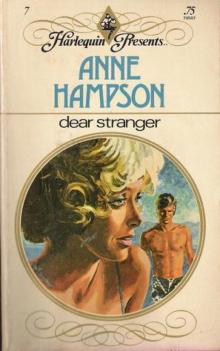 Dear Stranger
Dear Stranger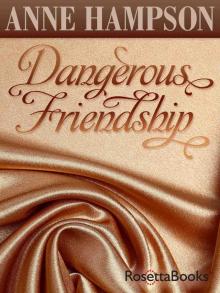 Dangerous Friendship
Dangerous Friendship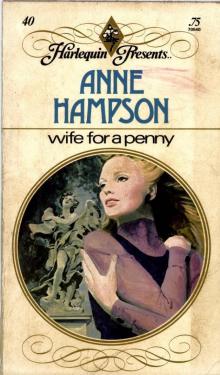 Wife for a Penny
Wife for a Penny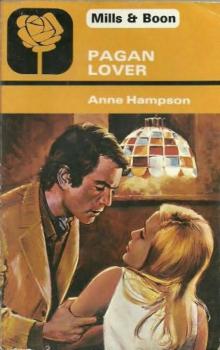 Pagan Lover
Pagan Lover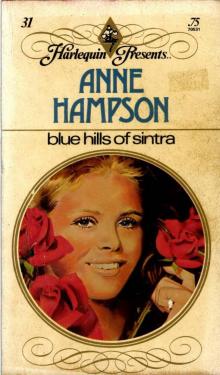 Blue Hills of Sintra
Blue Hills of Sintra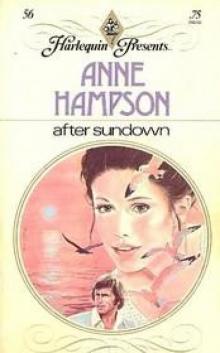 After Sundown
After Sundown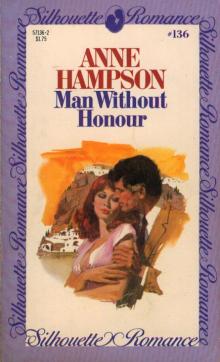 Man Without Honour
Man Without Honour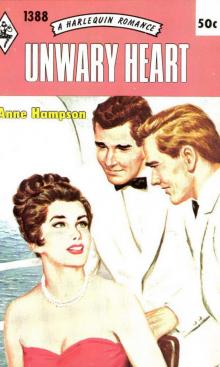 Unwary Heart
Unwary Heart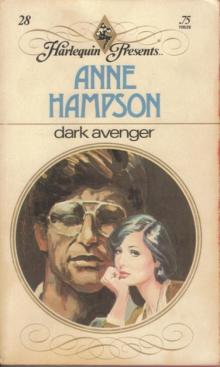 Dark Avenger
Dark Avenger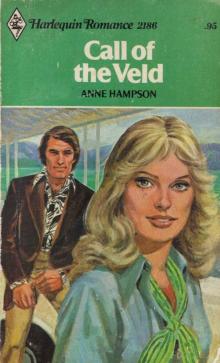 Anne Hampson - Call of The Veld
Anne Hampson - Call of The Veld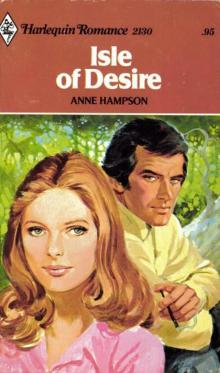 Isle of Desire
Isle of Desire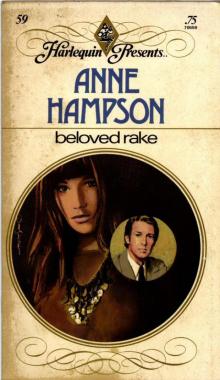 Beloved Rake
Beloved Rake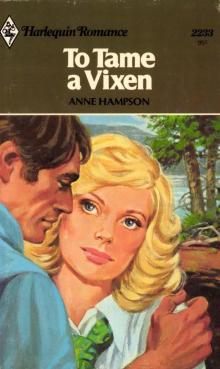 To Tame a Vixen
To Tame a Vixen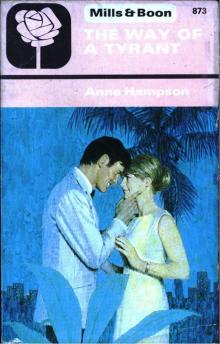 The Way of a Tyrant
The Way of a Tyrant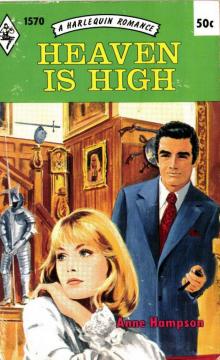 Heaven is High
Heaven is High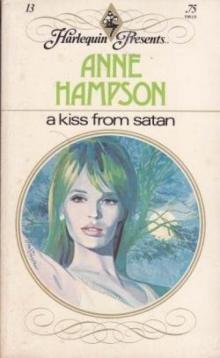 A Kiss From Satan
A Kiss From Satan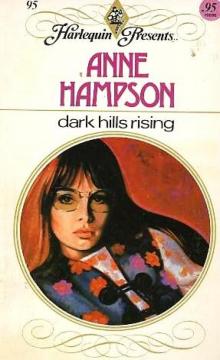 Dark Hills Rising
Dark Hills Rising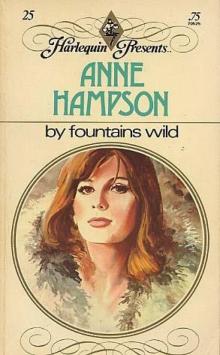 By Fountains Wild
By Fountains Wild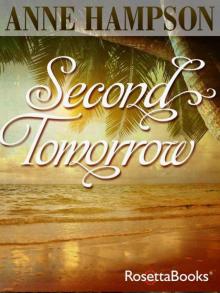 Second Tomorrow
Second Tomorrow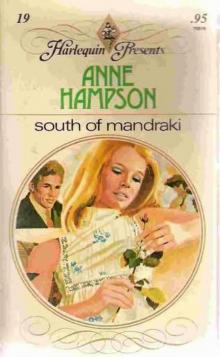 South of Mandraki
South of Mandraki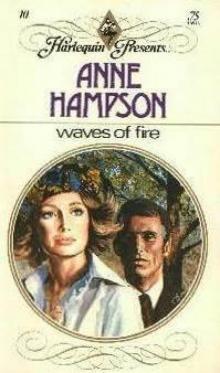 Waves of Fire
Waves of Fire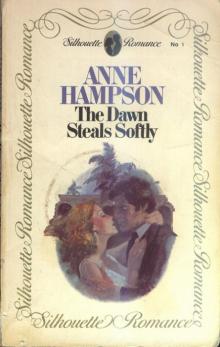 The Dawn Steals Softly
The Dawn Steals Softly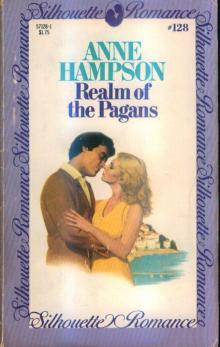 Realm of the Pagans
Realm of the Pagans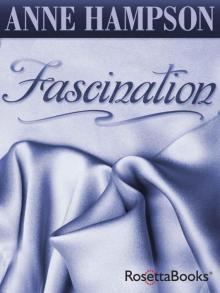 Fascination
Fascination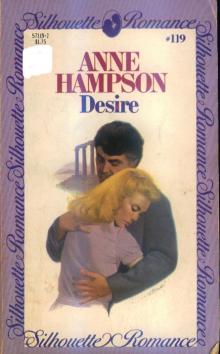 Desire
Desire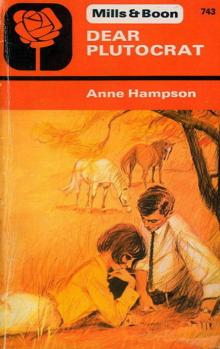 Dear Plutocrat
Dear Plutocrat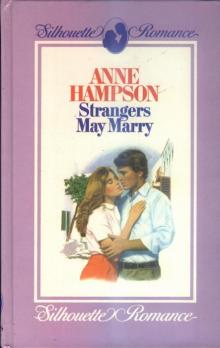 Strangers May Marry
Strangers May Marry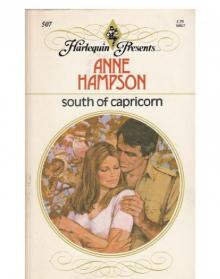 South of Capricorn
South of Capricorn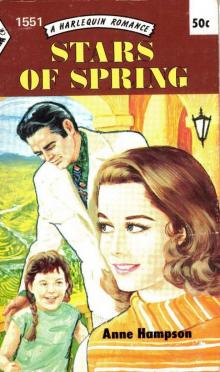 Stars of Spring
Stars of Spring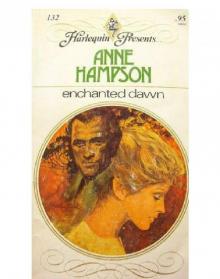 Enchanted Dawn
Enchanted Dawn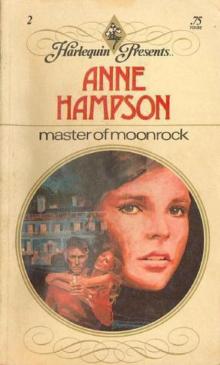 Master of Moonrock
Master of Moonrock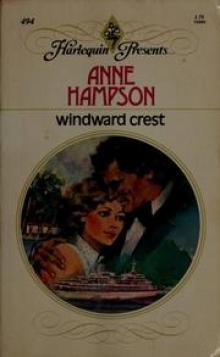 Windward Crest
Windward Crest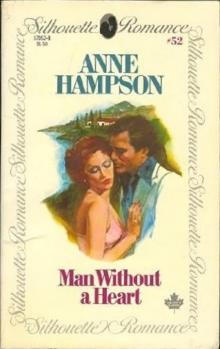 Man Without a Heart
Man Without a Heart